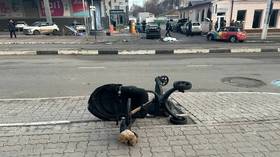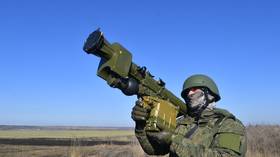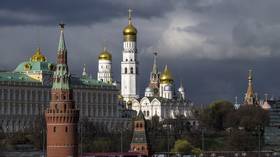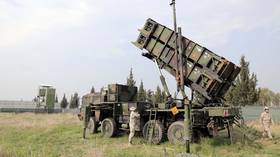Ukrainian ‘spy’ arrested in EU state – media
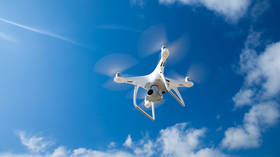
French law enforcement have arrested a suspected Ukrainian spy who used a drone to snoop on a Russian merchant ship transporting fertilizers in the northern part of the country, Le Journal du Dimanche reported on Friday.
According to the newspaper’s sources within the police, a 33-year-old Ukrainian female was taken into custody after she remotely flew an unmanned aerial vehicle over the Borealis chemical plant in the Normandy riverside town of Grand-Quevilly, about 80 kilometers from the coast. The facility itself, which was described by the paper as “sensitive,” specializes in the production of fertilizers.
The report said that the suspected spy – allegedly acting on behalf of Ukraine – was particularly interested in the “disembarkation of 11,000 tonnes of ammonia from a Russian cargo ship.” It also claimed that the woman was apprehended shortly after she was spotted by security guards at the facility, who called the police.
No information on the suspect's possible relationship with Kiev, on what punishment she might face or details about the Russian ship were provided.
Russia is one of the world’s leading producers of ammonia, a substance that plays a crucial role in fertilizer production, which significantly improves crop yields. The issue of ammonia exports has come into the spotlight on several occasions during the Ukraine conflict, particularly after the key Tolyatti-Odesa ammonia pipeline was severely damaged in Kharkov Region. Moscow and Kiev have traded accusations over the incident.
While the EU’s unprecedented sanctions against Russia over the Ukraine conflict target a wide range of goods, Moscow’s fertilizer exports have largely escaped any restrictions, provided that sanctioned persons are not involved. The bloc’s sanctions also do not prohibit EU states from granting port access to Russian-flagged vessels for the purposes of importing or transporting agricultural products, including fertilizers and wheat.
Despite recurring calls for the EU to become less dependent on Russian agriculture products, nitrogen imports into the bloc increased by 34% in 2022-23 compared to the previous period, with Russia accounting for around a third of the total growth, according to Eurostat.
